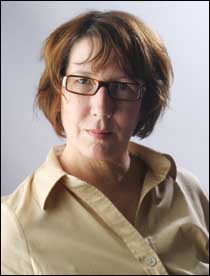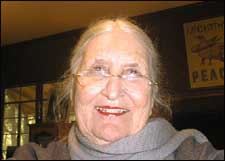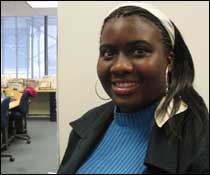A closer look at one of the icons of Christmas, "Jingle Bell Rock," unveils a tale of dastardly deeds and a lengthy dispute between the family of the song's claimed coauthor and the Nashville music industry. A lot of patient listening and research allowed Folio Weekly staff writer Susan Cooper Eastman to unfold the drama in her award-winning arts feature, "Jingle Bell Crock." This is the 20th in a "How I Got That Story" series highlighting the AltWeekly Awards' first-place winners.
When Steve Billings thought about what kind of food reviewer he wanted to be, he knew one thing. He didn't want to write dish-by-dish accounts of dining out. Instead, in his award-winning column for Metro Santa Cruz, he writes of the philosophy behind making sauerkraut, the goals of an organic farmer and other topical subjects. This is the 19th in a "How I Got That Story" series highlighting the AltWeekly Awards' first-place winners.
U.S. Rep. Tom DeLay probably rues the day that Andrew Wheat first laid hands on a spreadsheet. Wheat's research at the liberal think tank Texans for Public Justice informs the political columns he writes for The Texas Observer. His award-winning columns followed the money corporations donated to a political action committee to places it perhaps ought not to have been going. This is the 18th in a "How I Got That Story" series highlighting the AltWeekly Awards' first-place winners.
The Association for Alternative Newsweeklies is holding another contest for sales representatives who sell ads into the AAN CAN Network. The rep who sells the most total dollars from new advertisers into the AAN CAN Network between Nov. 10, 2005 and Jan. 30, 2006 will receive a 9-day trip for two to sunny Peru.
One of the secret weapons in Betty Brink's reporting arsenal is the way she looks. Because she cuts a grandmotherly figure, people can't help but confide in her. The reporter who started out at an underground paper in college now does award-winning news reporting for Fort Worth Weekly. This is the 17th in a "How I Got That Story" series highlighting the AltWeekly Awards' first-place winners.
Steve Bogira of the Chicago Reader writes primarily about urban poverty. One place where poor people's stories are told again and again, with unexpected nuances, is in the courtroom. Bogira's award-winning column, Courtside, recounts these stories, as does his recent book, Courtroom 302. This is the 16th in a "How I Got That Story" series highlighting the AltWeekly Awards' first-place winners.
The Association of Alternative Newsweeklies today announced the speakers and events for our two staff training conferences, AAN West and AAN East. Registration materials are being mailed to member papers; they should arrive shortly after Thanksgiving, in plenty of time for the early registration deadlines. Check the conference Web sites often for updates.
In the same year that Ayana Taylor served as a diversity intern for the Jackson Free Press, she wrote three news stories that won her a first-place AltWeekly Award. She believes it's her persistence that has made interview subjects open up to her, even when they didn't want to talk to the media. This is the 15th in a "How I Got That Story" series highlighting the AltWeekly Awards' first-place winners.
Now that it has distributed a total of $2,797.71 to each of Gambit Weekly's 48 staffers, AAN has closed the relief fund designed to help the paper's employees overcome the blow delivered by Hurricane Katrina. In the 10 weeks since it was established, the Gambit Relief Fund received donations totaling $135,558 from 33 organizations and more than 240 individuals. A complete list of contributors appears at the bottom of the story.
Harvey A. Silverglate brings to his commentary on legal issues for The Boston Phoenix an impressive background. He is not only a journalist but a practicing lawyer, one with an acute sense of the failings of the criminal-justice system. His political column, Freedom Watch, won a 2005 AltWeekly Award. This is the 14th in a "How I Got That Story" series highlighting the AltWeekly Awards' first-place winners.
- Go to the previous page
- 1
- …
- 58
- 59
- 60
- 61
- 62
- 63
- 64
- …
- 94
- Go to the next page





